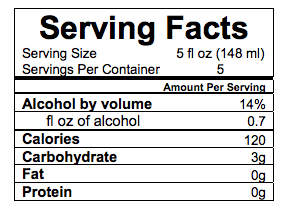Blog
UCSF Study: Tobacco & Alcohol Industries Joined Forces
 Authors of a new study out of the UCSF Center for Tobacco Control Research and Education examined the ties between the tobacco and alcohol industries and explored the extent to which the two sectors collaborated to combat legislation and influence policymaking. It found that tobacco companies started building coalitions with the alcohol industry in the early 1980s, and the two industries have continued to have a covert funding and lobbying alliance that may have affected legislation as well as public perception.Their analysis, entitled "Vested Interests in addiction research and policy: Alliance between tobacco and alcohol industries to shape public policy," was published in the May 2013 edition of Addiction. To read more about the study, click here.
Authors of a new study out of the UCSF Center for Tobacco Control Research and Education examined the ties between the tobacco and alcohol industries and explored the extent to which the two sectors collaborated to combat legislation and influence policymaking. It found that tobacco companies started building coalitions with the alcohol industry in the early 1980s, and the two industries have continued to have a covert funding and lobbying alliance that may have affected legislation as well as public perception.Their analysis, entitled "Vested Interests in addiction research and policy: Alliance between tobacco and alcohol industries to shape public policy," was published in the May 2013 edition of Addiction. To read more about the study, click here.Diageo, DISCUS, & Voluntary Labels
 Last week, the Alcohol and Tobacco Tax and Trade Bureau (TTB) issued a ruling that allows alcohol producers to add "Serving Facts" labels to their products - yes, the same kind of labels required on packaged food and drink items. For alcohol, however, the ruling is voluntary - companies can select when and on which products they want to highlight serving information, and for which products it is in their best interest to leave them off. Thus, it's a win-win for manufacturers: they gain a marketing tool; inch potentially harmful products ever closer to being treated as nonalcoholic beverages; and spin the labels as a win for public health.
Last week, the Alcohol and Tobacco Tax and Trade Bureau (TTB) issued a ruling that allows alcohol producers to add "Serving Facts" labels to their products - yes, the same kind of labels required on packaged food and drink items. For alcohol, however, the ruling is voluntary - companies can select when and on which products they want to highlight serving information, and for which products it is in their best interest to leave them off. Thus, it's a win-win for manufacturers: they gain a marketing tool; inch potentially harmful products ever closer to being treated as nonalcoholic beverages; and spin the labels as a win for public health. Not surprisingly, the alcohol industry - particularly distillers - erupted in applause at the TTB's announcement. Diageo issued a press release (at nearly the same time as the TTB) that cooed about the"victory for public health and American consumers." The distilled spirits council (DISCUS) issued a similarly obnoxious statement, in which they "applaud the TTB" for "one of the most significant TTB labeling initiatives for distilled spirits, beer and wine in decades."
Let's get real here: Industry support of alcohol serving facts labels is not actually about reducing alcohol-related harm and improving public health. Distilled spirits producers are excited because they have gained another tool in their arsenal, to be deployed selectively when it serves their bottom line. On the marketing end of the table, alcohol companies have carved out product niches for the last several years among weight- and health-conscious drinkers, as our report Questionable Claims from the Alcohol Industry: From Protein Vodka to Weight Loss Beer illuminates. Products such as SkinnyGirl that are marketed as "low calorie" or "low carb" may choose to sport a serving facts label, while the products that are high in calories and sugar most likely will not. When viewed as simply another marketing tool, it's easy to see how such a ruling will likely serve to significantly increase positive perceptions about alcoholic beverages and their brands, thus leading to increased sales and consumption.
The TTB ruling on serving fact labels offers alcohol corporations the perfect combination of benefits: It is voluntary, so it can be used whenever and however the producer sees fit. It employs the same label format as the food and nonalcoholic beverage industry. Finally, it allows producers to call voluntary, self-promoting alcohol serving labels contributions to public health, which they most definitely are not.
Sorry guys; we're not buying it. Rather than using (and celebrating) this ruling as permission to use serving facts labels to market their products, all alcohol producers should be required to list all ingredients and provide factual information in a way that does not promote consumption. Alcohol is considered "no ordinary commodity" for a reason, and should be labeled as such.
Ohio Protects Three-Tier System, Makes A-B InBev Upset
 Ohio's Governor Kasich signed Senate Bill 48 into law on April 30. The new law limits beer brewers from moving into the distributor business, thus protecting the three-tiered system of alcohol manufacturing, distribution, and sales in the state. Needless to say, the measure does not have the support of beer conglomerate Anheuser-Busch InBev, whose lobbyists cried foul and demanded meetings with legislators to complain after the bill had already passed. In a public statement, an A-B InBev rep said that they “remain concerned about the manner in which this…was introduced and passed.” Despite A-B InBev's big budget line for lobbying and political contributions, and complaints sounding remarkably close to whining about how much control Big Beer didn't have over the legislative process this time, Ohio lawmakers went with what was best for the public good.
Ohio's Governor Kasich signed Senate Bill 48 into law on April 30. The new law limits beer brewers from moving into the distributor business, thus protecting the three-tiered system of alcohol manufacturing, distribution, and sales in the state. Needless to say, the measure does not have the support of beer conglomerate Anheuser-Busch InBev, whose lobbyists cried foul and demanded meetings with legislators to complain after the bill had already passed. In a public statement, an A-B InBev rep said that they “remain concerned about the manner in which this…was introduced and passed.” Despite A-B InBev's big budget line for lobbying and political contributions, and complaints sounding remarkably close to whining about how much control Big Beer didn't have over the legislative process this time, Ohio lawmakers went with what was best for the public good.
Wyoming Study: Cost of Alcohol-Related Harm Tops $843 Million

The Wyoming Department of Health and the University of Wyoming teamed up to conduct and publish a study of the economic costs of substance abuse in the state. Alcohol-related harm constituted the largest percentage of the burden, accounting for over $843 million in economic costs in 2010, of which $589 million was attributed to productivity losses, $206.2 million to health care costs, $30.4 million to crime-related costs, and $17.4 million to other costs like motor vehicle crashes. The full study is available for download here.
More Articles ...
Help us hold Big Alcohol accountable for the harm its products cause.
| GET ACTION ALERTS AND eNEWS |
STAY CONNECTED    |
CONTACT US 24 Belvedere St. San Rafael, CA 94901 415-456-5692 |
SUPPORT US Terms of Service & Privacy Policy |


